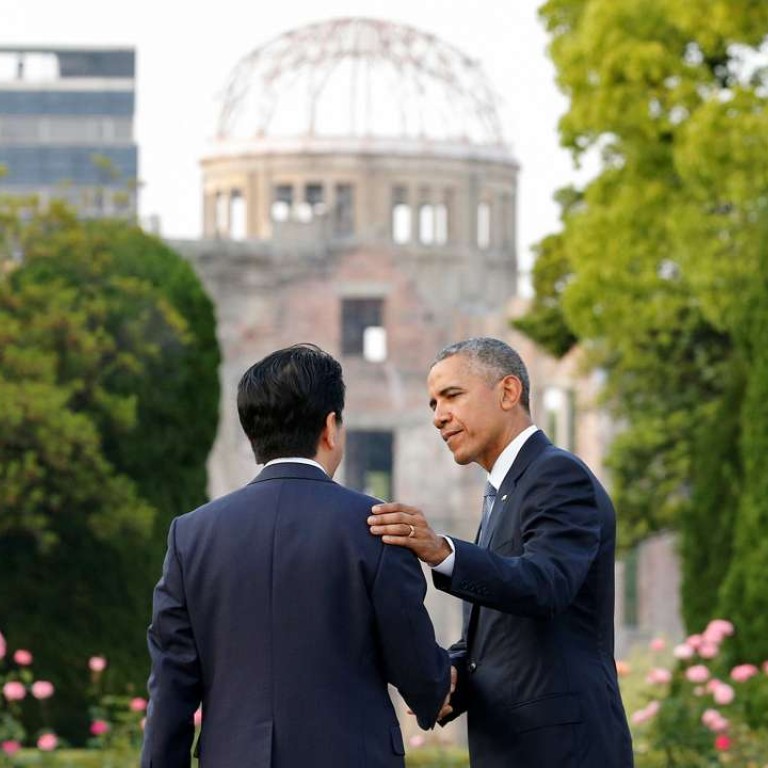
How China the ‘bad cop’ in Southeast Asia turns into a ‘good cop’ in East Asia
John Kotch says Obama’s historic trip to Vietnam and Japan underscores how America wants China to play differing roles in the region
It’s trite but true: “Politics makes strange bedfellows”; geopolitics even more so. US President Barack Obama’s farewell lap last week, simultaneously wading into the politics of East Asia, both north and south, underscores the axiom that “nations don’t have permanent allies, only permanent interests”.
First, breaking bread in Vietnam with an old adversary; later sandwiching in a trip to Hiroshima during a G7 meeting in Tokyo highlighting the danger and devastation of nuclear weapons. And, at each stop, China is the 800lb gorilla absent physically, but waiting in the wings.
In Southeast Asia, Washington has now aligned itself with Vietnam, its new-found geopolitical partner, along with the Philippines, to counter increasing Chinese assertiveness. In the former, a delicate trade-off between human rights considerations and the need for defensive weapons was settled in Hanoi’s favour. Still, no one expects a new US relationship with Vietnam to evolve into that of a treaty ally, as with Japan and South Korea – the legacy of the Vietnam war is still too recent for that.

Obama calls for peaceful settlement of South China Sea disputes, demands greater freedoms for Vietnamese citizens
More broadly, the US pushback against Chinese encroachment in the South China Sea is aimed at countering Chinese territorial claims, manifested in efforts to develop islets as way stations for military activities. In effect, China is attempting to turn the South China Sea into a sort of archipelago where neighbouring states would enjoy a right of way but not the right to the exploitation of undersea commodities, according to rules governing waters in archipelagoes as internal territory.
What makes the political situation all the more bizarre is that while Washington is waving the red “stop” sign at China in Southeast Asia, the tables are turned in Northeast Asia. There, the US is flashing the green light signalling the need for great power cooperation to rein in North Korea, Beijing’s long-time ally. And while Pyongyang’s possession of weapons of mass destruction could never be far from Obama’s thoughts in Hiroshima, China views the city in political terms – the unfortunate result of Japanese aggression – rather than as a victim of war. It’s almost as if China is being asked to play the “good cop” in the north while being pilloried as the “bad cop” in the south.
China, US and others should join hands to make plans in case North Korea collapses: former US commander
In the latter, China is projecting power southward, with geopolitics arguably trumping international law, while also fearful of any northward projection of US power on the Korean peninsula in the event of a North Korean collapse. That Washington has no such intention is lost in the fog between perception and political reality. And part of that reality is that the US is in Asia to stay.
John Kotch is a political historian and long-time resident of Asia

